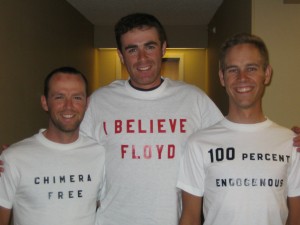Doping: Did I speak out enough?
How I handled the issue during my career as a pro
The recent revelations about rampant doping within the cycling community aren’t anything new. Within the cycling community, we were all aware of the rumours and stories circulating about what was going on. It seemed to be everywhere. In many ways the cycling community itself was complicit in the doping: the fans, the riders and, perhaps most of all, the governing bodies who didn’t take a firm stand.
Since the news broke, I have done a lot of soul searching, thinking about my own stance toward doping in cycling. Did I do enough? There were many riders that we knew were doping (or at least had a good idea they were). Ideally, we should have ostracized them, told them to get lost. But we didn’t. We complained to one another about the dopers still being in the peloton, but didn’t have harsh words for them when they talked to us. Should we have done more? Probably. It is extremely hard to be a jerk to someone’s face, despite their having been a liar and cheat as a doper. And if they hadn’t tested positive, but had the reputation as a cheat, then what were we to do? These are the great dilemmas of doping.
Thinking back on those days, I was starting to feel guilty that I had been complicit and had not spoken out forcibly enough in support of drug-free cycling. Luckily, I had spoken out. And I wasn’t the only one. At Symmetrics between 2006-2008, we had a great team spirit, and a strong anti-doping ethic within the team. In particular, I remember two instances in which we protested against doping in cycling.
Of the two, the most significant was in 2006 at the Tour of Utah. The Floyd Landis and Tyler Hamilton doping controversies were washing over the cycling community. Landis claimed he hadn’t taken any drugs, that he didn’t have any exogenous substances in his body. Hamilton, meanwhile, had concocted a story about a missing twin, a chimera, that explained how someone else’s blood could have been in his body. The stories were ridiculous. To highlight their silliness, Andrew Pinfold, Jake Erker and I made up some t-shirts making fun to them (see image below). It was fun to make a statement and we proudly wore the t-shirts to the start of one of the stages. I remember there were many who didn’t think gesture was funny, but we felt we had made a statement that needed to be made.
In 2007, many of us on the team began wearing Dopers Suck socks while racing. I don’t know how this made the dopers in the peloton feel, but at least we were making it clear that we didn’t believe in making unethical decisions. Someone asked me recently if I had worn the socks when Hincapie was in Toronto for a charity event. My reply was that no, I had only worn them when it mattered, when I had been racing against these guys.

